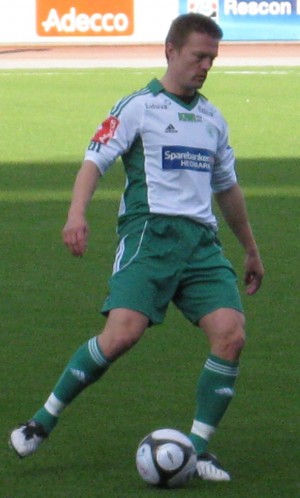Two Norwegian footballers have claimed match fixing was rife in the Russian premier league when they played between 2005 and 2008. Former national team member Erik “Panzer” Hagen admitted he and other Zenit St Petersburg players personally paid off a referee during a UEFA Cup match.

Erik Hagen and Jørgen Jalland became the first Norwegians to play top level football in Russia, after their successful season with Norwegian club Vålerenga in 2004. Hagen joined Zenit, while Jalland went to Rubin Kazan. The pair told newspaper VG on Wednesday that match fixing was so widespread, in some cases it was possible to know if the team was going to win or lose a game within 10 minutes.
Hagen claimed in one UEFA cup match, he was concerned to discover a teammate knew the referee and was furious when the players agreed to fix the match. “We had some crazy series bonuses in Europe, 12,000 dollars,” he said. “Before the match this player said all of us should give 3,000 dollars of the bonus to the referee.”
Hagen said the opposition team was cheated of four goals after bizarre offside decisions. “The opposition players were cursed, and so was I,” he said. “I completely flipped, and smashed mirrors and doors.” But he said he paid his share of the fixing fee. “Yes, I gave 3,000 dollars of my series bonus to the referee. Afterwards a teammate came to me and said that it should never happen again.”
Claims denied
The referee told VG he remembered the game, but denied knowing any of the Zenit players or that he’d been paid to fix the match. “No, that’s nonsense,” he said. “Just nonsense! I didn’t get any offers. Something like that never came to me.” VG reported the phone line cut out, and they couldn’t get back through to the referee.
Zenit’s press officer Jevhenij Gusev said the club was deeply shocked by Hagen’s claims. “Let me assure you that Zenit has always followed the principles of fair play and has always declared that the results of the matches must be decided on the pitch,” he said.
Survey supports accusations
UEFA said it does not comment on individual matches, unless there are reactions implemented. However, a 2012 survey by international player organization FIFPro found results apparently supporting Hagen and Jalland’s claims. Of the 177 Russian premier league players interviewed, more than 10 percent said they’d been contacted to fix match outcomes, and 43.5 percent said they knew of matches that had been fixed.
Hagen said it wasn’t just the UEFA Cup game that was rigged, and he laughs when he remembers Zenit’s winning season in 2007. “Our last 10 matches. Oh my God,” he told VG. “All referee decisions went in our favour. It was totally embarassing.” Hagen said match fixing was so widespread, before the league’s championship match both the Zenit and CSKA team presidents went to the media to promise the outcome wouldn’t be fixed.
It became clear the match had been rigged when a Zenit player was wrongly called offside. “Later CSKA got a corner, no one did a damn thing, but nonetheless they got a penalty,” said Hagen. “Obviously CSKA won the game and the title.” The Russian football federation later admitted the judge had been wrong to cancel two Zenit goals and award CSKA an undeserved penalty. Politicians demanded an inquiry and Zenit called for a rematch, but CSKA denied any wrongdoing and kept the championship.
“There were many episodes,” agreed Jalland. “It was normal that you went out on the pitch and felt the outcome of the match was given, regardless of what you did.” He said for one away game, the opposition team was above Rubin on the table and it should have been an even match. “Instead we got a very cheap goal early in the game, and next we got a cheap penalty and were 2-0. At the end we won 5-1. The atmosphere in the changerooms afterwards was totally strange. Usually it would have been full of energy, but here it was totally quiet and everyone wondered what had happened.
Both men said they didn’t like that match fixing was a part of the game in Russia, but they were glad to have played in the league. “The level was much better than in Norway, and I think as a whole it was positive,” said Jalland. He is now a businessman and head coach with Ørn-Horten’s second division team, while Hagen is struggling to recover from an old football injury.
newsinenglish.no/Emily Woodgate

